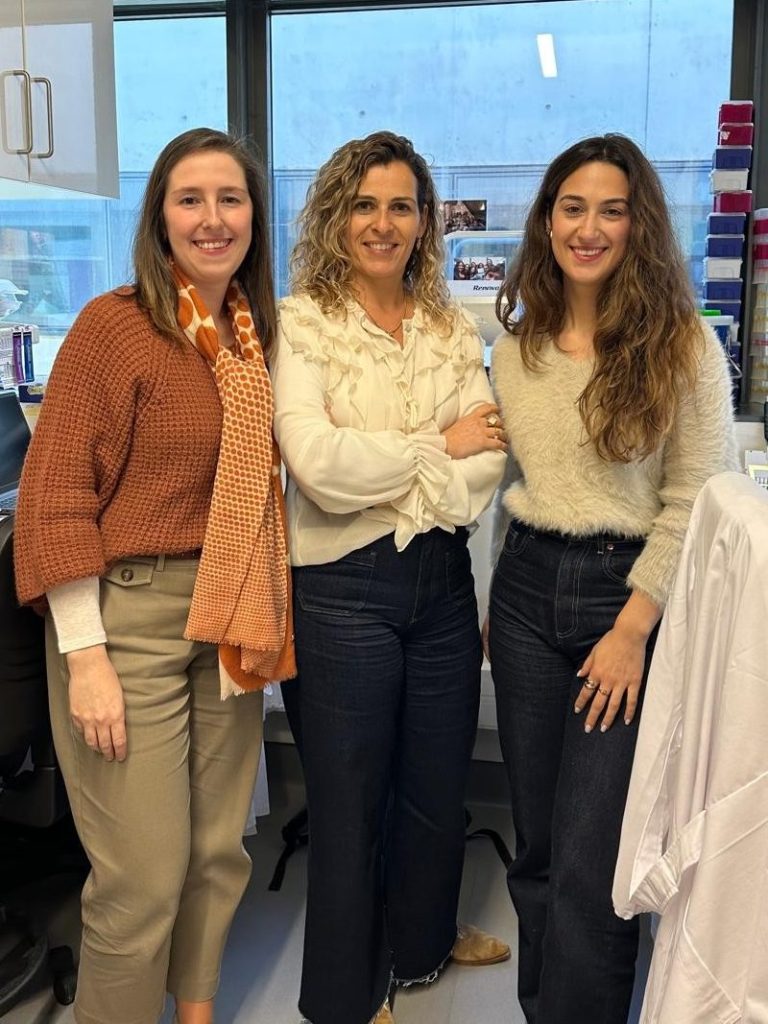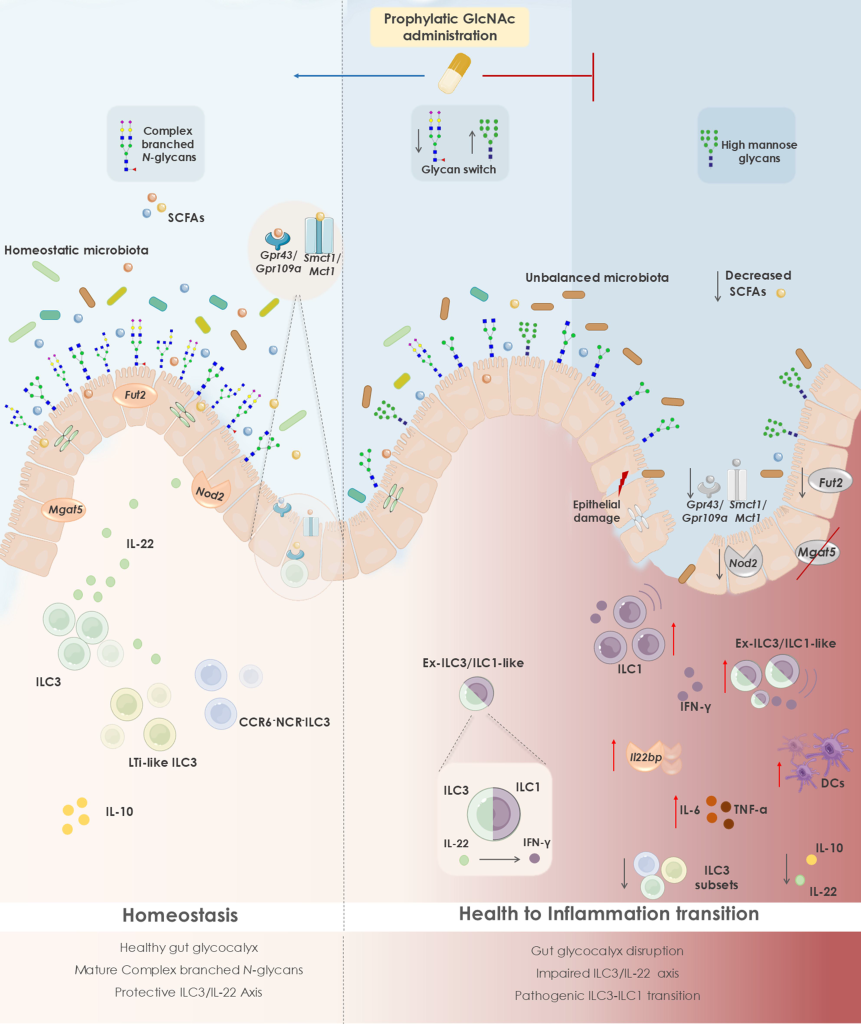Instituto de Investigação e Inovação em Saúde, Universidade do Porto
Rua Alfredo Allen, 208 4200-135 Porto, Portugal
Phone: +351 226 074 900
Email: info@i3s.up.pt
Exciting news!
Our latest publication, published in the journal Gut Microbes, delves into how the glycosylation of the gut mucosa impacts the crosstalk between microbiota and immune cells in the context of inflammatory bowel disease (IBD).

Co-authored by Cláudia Rodrigues and Joana Gaifem (a PhD student and a post-doc at the Pinho Lab, respectively), the study describes how decreased levels of complex N-glycans reconfigure the gut microbiota, leading to dysbiosis (imbalance in the microbial populations in the gut). This is concomitant with alterations in the immune landscape of the gut. In particular, type 3 innate lymphoid cells (ILC3), which act as important mediators of intestinal homeostasis, are biased towards a more pro-inflammatory phenotype in the absence of branched N-glycans, by its differentiation in ILC1. Conversely, glycan supplementation was able to revert these effects, by restoring adequate ILC function and fine-tuning microbial-derived short-chain fatty acids and microbial sensing, thereby controlling the onset of intestinal inflammation.
Glycans have recently emerged as versatile mediators of intestinal homeostasis. However, we know less about how they connect the various facets of IBD. In this publication, we show how altered glycosylation simultaneously perturbs the gut microbiome and immune dynamics, potentiating inflammation. Thus, this work provides the mechanistic basis for new preventing strategies that halt the progression of IBD.
Check out the full article: Rodrigues, C. S., Gaifem, J., Pereira, M. S., Alves, M. F., Silva, M., Padrão, N., … Pinho, S. S. (2025). Alterations in mucosa branched N-glycans lead to dysbiosis and downregulation of ILC3: a key driver of intestinal inflammation. Gut Microbes, 7(1) https://doi.org/10.1080/19490976.2025.2461210
